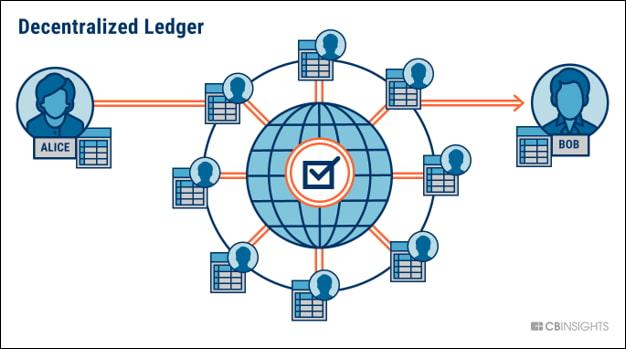In an age defined by rapid technological advancement and relentless innovation, one of the most intriguing developments of our time lies within the intricate world of blockchain technology. Often hailed as a revolutionary force, blockchain is more than just the backbone of cryptocurrencies; it is a powerful tool with the potential to reshape various industries and redefine the way we think about trust, transparency, and decentralized interactions. As we embark on this journey through the realms of blockchain, we will explore its fundamental principles, the myriad applications it unlocks, and the challenges that lie ahead. Join us as we unravel the layers of this groundbreaking technology, examining how it can unlock potential not only for businesses and economies but also for individuals seeking new ways to connect and collaborate in this interconnected world.
Exploring the Fundamentals of Blockchain Technology and Its Transformative Impact
At its core, blockchain technology is a decentralized ledger system that transcends traditional data management methods. By enabling transactions to be recorded in a secure, immutable format, it offers several key benefits that are reshaping industries worldwide. Here are some fundamental characteristics of blockchain:
- Decentralization: Unlike conventional databases that rely on a central authority, blockchain distributes data across a network of computers, enhancing security and transparency.
- Immutability: Once information is added to the blockchain, it cannot be altered or deleted, ensuring that records remain trustworthy and verifiable.
- Transparency: All participants in the blockchain network have access to the same information, eliminating discrepancies and fostering accountability.
The transformative potential of blockchain extends beyond cryptocurrencies, permeating various sectors such as finance, healthcare, and supply chain management. Key applications include:
- Smart Contracts: Self-executing contracts with the terms of the agreement directly written into code, reducing the need for intermediaries.
- Identity Verification: Secure, digital identities that can help prevent fraud and enhance privacy in transactions.
- Supply Chain Tracking: Real-time visibility into product journeys, increasing trust among consumers and manufacturers.

Navigating Real-World Applications: From Finance to Supply Chain
In the rapidly evolving landscape of technology, blockchain continues to emerge as a pivotal force across various sectors. Finance stands at the forefront of this revolution, leveraging decentralized ledgers to enhance security and streamline transactions. Key applications include:
- Cryptocurrencies: Providing a new medium of exchange beyond traditional fiat currencies.
- Smart Contracts: Automating and enforcing agreements with minimal need for intermediaries.
- Fraud Prevention: Offering a transparent record that can significantly reduce fraudulent activities.
However, the disruptive potential of blockchain extends beyond finance. In the realm of Supply Chain Management, organizations are harnessing this technology to achieve greater transparency and efficiency. Implementing blockchain can:
- Enhance Traceability: Allow for real-time tracking of goods from origin to consumer.
- Improve Accountability: Ensure every participant in the supply chain is held responsible for their actions.
- Reduce Costs: Streamline operations by minimizing paperwork and administrative overhead.
| Sector | Application | Benefit |
|---|---|---|
| Finance | Cryptocurrency Transactions | Lower transaction fees |
| Finance | Smart Contracts | Increased efficiency |
| Supply Chain | Product Traceability | Elimination of counterfeit goods |
| Supply Chain | Data Sharing | Real-time information access |

Empowering Innovation: How Blockchain Fuels Entrepreneurs and Startups
In a world where traditional finance is often fraught with barriers, blockchain technology has emerged as a beacon of possibility for entrepreneurs and startups. By providing a decentralized platform, it enables businesses to operate with greater transparency, security, and efficiency. This shift is not just about digital currencies; it encompasses a vast array of applications that can transform various industries. For instance, startups can leverage smart contracts to automate agreements, reducing the need for intermediaries and cutting down costs. This ultimately leads to a more streamlined and trustful relationship between parties.
Moreover, the accessibility of blockchain allows innovators to tap into new funding mechanisms, such as Initial Coin Offerings (ICOs) and Decentralized Finance (DeFi). These avenues have revolutionized how startups can attract investment, offering them a chance to circumvent the limitations of traditional funding routes. Entrepreneurs can take advantage of global participation, allowing potential investors from around the world to engage. Key benefits of utilizing blockchain for startups include:
- Enhanced Security: Data stored on a blockchain is immutable and secure from fraud.
- Global Reach: Blockchain eliminates geographical barriers, enabling seamless international transactions.
- Lower Costs: By removing intermediaries, operational costs can be significantly reduced.
- Community Building: Startups can foster loyal communities around their projects, increasing engagement and support.

Future Trends and Recommendations for Harnessing Blockchain Potential
As the potential of blockchain technology continues to evolve, several key trends are emerging that businesses and developers should closely monitor. Decentralized Finance (DeFi) remains at the forefront, reshaping how we interact with financial services. An increasing reliance on smart contracts will automate processes, reducing the need for intermediaries. Additionally, the rise of Non-Fungible Tokens (NFTs) is transforming the art and entertainment industries, opening up new avenues for creators while also presenting challenges around copyright and ownership. The integration of Internet of Things (IoT) with blockchain aims to enhance data security and streamline operations across various sectors, creating a more interconnected ecosystem.
To truly harness the transformative power of blockchain, stakeholders should consider the following recommendations: focus on interoperability to allow different blockchain networks to communicate seamlessly; prioritize sustainability by exploring energy-efficient consensus mechanisms; and enhance regulatory compliance to address the evolving legal landscape. Furthermore, collaboration among industry players can lead to shared innovation and resource optimization. Embracing a user-centric approach will help drive broader adoption, ensuring that the solutions developed are designed with end-users in mind, ultimately fostering trust and transparency in the digital economy.
To Wrap It Up
As we conclude our exploration of blockchain technology, it’s clear that this digital frontier is more than just a collection of complex algorithms and cryptographic protocols; it represents a revolutionary shift in how we perceive trust, transparency, and ownership. The journey through the intricate layers of this technology reveals its potential to unlock new avenues for innovation and collaboration across various sectors. By harnessing the principles of decentralization and immutability, we are not just redefining transactions but also reconstructing relationships and redefining the concept of community.
As we stand at the cusp of this technological transformation, the call to action is not merely to observe but to engage. Whether you’re an entrepreneur looking to disrupt traditional industries or a curious mind eager to delve deeper, the possibilities within blockchain are boundless. Let us embrace this journey together, forging pathways to a future where our potential is truly limitless. In the grand tapestry of technological advancements, blockchain offers a vibrant thread—one that, if woven with intention and creativity, can lead to a brighter, more inclusive tomorrow.



